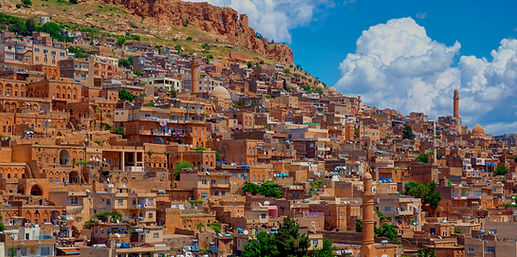Israel fuels instability in Syria, undermines regional security’
- jasonmoorebox
- Aug 21
- 3 min read

Israel’s policies in Syria, which is on the path of restructuring the country, are fueling instability while threatening regional policies, Türkiye’s U.N. envoy Ahmet Yıldız said on Thursday.
"Syria continues to remain high on the international agenda. The new period requires sustained efforts to secure peace and stability on the basis of the country's sovereignty, territorial integrity and national unity," Yıldız told a U.N. Security Council meeting.
He said "empowering the Syrian administration is crucial to achieve this goal," adding: "We must not allow our focus to deviate from the essential task of restoring stability and security in the country."
Calling for the "removal of remaining sanctions for the Syrian administration to deliver and serve its citizens," Yıldız stressed that "a centralized administration and a unified national army are indispensable" to peace.
"Recent developments in Suwayda once again demonstrate the destructive and destabilizing nature of Israeli policies in the region," he said, warning that "destabilizing actions which threaten Syria's unity, stability and the welfare of its people should not be tolerated."
"Efforts that undermine Syria's sovereignty or fuel fragmentation carry serious risks of broader regional destabilization," he added.
Violence in Suwayda erupted in mid-July between Bedouin tribes and Druze factions. Government forces intervened to quell the fighting, while Israel intervened and also bombed Damascus, under the pretext of protecting the Druze minority. A U.S.-brokered truce was later announced.
Credible steps needed from SDF
Yıldız pointed to the March 10 agreement between the Syrian government and the terrorist organization SDF, an umbrella organization of the YPG, noting: "We have yet to see credible steps from the 'SDF' that would reduce tensions or contribute to an environment of security and trust."
"Additional pressure must be exerted on the ‘SDF,' which seeks to prolong uncertainty and exploit potential crises for gain," he stressed.
On March 10, the Syrian Presidency announced the signing of an agreement for the integration of the SDF into state institutions, reaffirming the country's territorial unity and rejecting any attempts at division.
Under the March deal, the SDF forces would merge with the new Syrian national army. The agreement, which is supposed to be implemented by the end of the year, would also bring all border crossings with Iraq and Türkiye, and airports and oil fields in the northeast under the central government’s control. Detention centers housing thousands of Daesh members, now guarded by the YPG, would also come under government control.
However, the agreement left the details vague, and progress on implementation has been slow. A major sticking point has been whether the YPG would remain as a cohesive unit in the new army or whether the force would be dissolved and its members individually absorbed into the new military.
It marks a major breakthrough that would bring most of Syria under the control of the government led by the group that spearheaded the ousting of dictator Bashar Assad in December.
The SDF, which is the Syrian branch of the PKK terror group, had refused to join the new Syrian Defense Ministry following the fall of the Assad regime in Syria.
The deal to be implemented by the end of the year would bring all border crossings with Iraq and Türkiye in the northeast, airports and oil fields under the control of the central government.
Syria's Kurds will gain their rights, including teaching and using their language, which were banned for decades under Assad.
Since 2015, the PKK/YPG has occupied several Syrian provinces, including Arab-majority Deir el-Zour, a resource-rich region bordering Iraq, bisected by the Euphrates River and home to dozens of tribal communities.
The terrorist group has forced many locals to migrate, bringing in its members to change the regional demographic structure, conducting arbitrary arrests, kidnapping children of local tribes for forced recruitment and assassinating tribe leaders to yoke local groups.
It has also seized the region's oil wells – Syria's largest – and smuggled oil to the Syrian regime, despite U.S. sanctions, to generate revenue for its activities.
U.S. forces in Syria have trained thousands of YPG/PKK terrorists in their military bases in the region under the pretext of combating terrorism. The U.S. has also provided YPG/PKK terrorists with huge amounts of weapons and combat equipment. Türkiye, which has troops inside Syria, and Turkish-backed opposition groups in Syria's northwest, routinely clashed with the PKK/YPG, which sought to establish a terror corridor along the country's border.
Engagement with new Syria gov’t
Yıldız said "the period ahead requires engagement with the Syrian government and closer international cooperation," and reiterated: "Türkiye will remain fully committed to this vision."
The Syrian government has been intensifying security efforts since last year's ouster of Bashar Assad after 24 years in power.
Assad, Syria's leader for nearly 25 years, fled to Russia in December, ending the Baath Party regime, which had been in power since 1963. A new transitional administration led by President Ahmad al-Sharaa was formed in January.




Comments